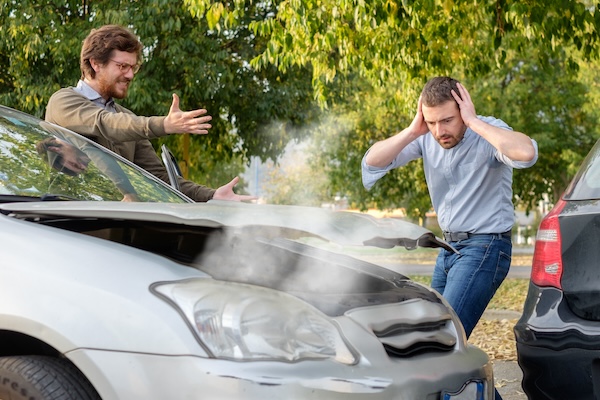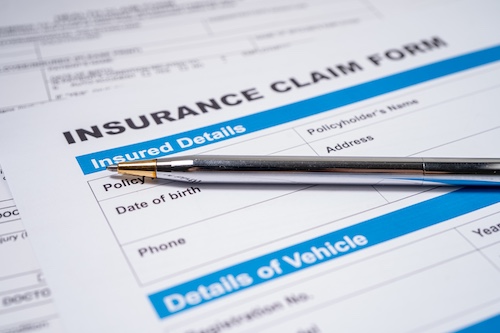Determining Car Accident Fault in Tennessee: What You Need to Know
When you’re involved in a Tennessee car accident or auto accident, one of the first questions that arise is often, “Who’s at fault?” Determining fault in a car accident is crucial because it impacts how insurance claims are handled, who pays for damages, and whether anyone faces legal consequences. Understanding Tennessee’s fault laws can help you navigate the aftermath of a Knoxville car crash with more clarity and confidence.
Introduction to Car Accidents
Car accidents can be devastating, causing physical harm, emotional distress, and financial burdens. In the aftermath of a car crash, determining fault is crucial in establishing liability and seeking compensation for damages. As an at-fault state, Tennessee requires drivers to carry auto insurance to protect themselves and others in the event of a car accident. Understanding the laws and regulations surrounding car accidents is essential for drivers to navigate the complex process of determining fault and recovering damages. If you’ve been involved in a car accident, it’s vital to consult with an experienced car wreck lawyer to ensure you receive the compensation you deserve.
What is Fault in a Car Accident?
In Tennessee, the issue of car accident fault is key to determining who is responsible for paying for damages caused by the crash. Fault refers to the person or party who caused or contributed to the accident through negligent actions, recklessness, or violation of traffic laws. In car accidents, this can range from speeding to running a red light or driving under the influence of alcohol.
The Accident Scene
The accident scene is a critical component in determining fault. Immediately after a car crash, it’s essential to call the police and report the incident. The police report will include vital details such as the names and insurance information of the drivers involved, weather and road conditions, and a description of the accident. Additionally, taking photos of the accident scene, including vehicle damage and any visible injuries, can serve as valuable evidence in determining fault. It’s also crucial to exchange information with the other driver, including names, phone numbers, and insurance details. If possible, gather evidence from witnesses, such as statements or contact information, to support your claim.
Tennessee’s Comparative Fault Law
Tennessee operates under a comparative fault system, meaning that the person at fault for a car crash may not be 100% responsible for the damages. In fact, if you are partially responsible for the accident, Tennessee law allows you to recover damages, but the amount of compensation you can receive will be reduced by your percentage of fault. Under this system, drivers share fault percentages, which directly affect their ability to recover damages based on the degree of fault assigned to each driver.
For instance, if you were involved in a Knoxville car crash where you were deemed 30% at fault and the other driver was 70% at fault, your compensation would be reduced by 30%. This is especially important to consider when assessing the aftermath of a Knoxville car crash, as the allocation of fault can directly impact your financial recovery.
How Is Fault Determined in a Knoxville Car Crash?
After a Knoxville car crash, fault is typically determined through a combination of evidence, witness testimony, and police reports. The following factors may come into play when deciding who is at fault:
- Police Report: Officers often provide an objective account of the accident scene, including traffic violations and contributing factors that may indicate fault.
- Eyewitness Testimony: Witnesses can help clarify the actions leading up to the accident, especially when the evidence is unclear.
- Traffic Laws and Regulations: A violation of traffic laws, such as running a stop sign or failing to yield, can be a significant factor in determining car accident fault.
- Vehicle Damage and Accident Reconstruction: Expert accident reconstruction specialists may be brought in to analyze the accident and determine how the collision occurred, helping to pinpoint the responsible party.
For example, in a scenario where one driver runs a red light while another driver is speeding, fault might be shared between both drivers. This highlights how different comparative negligence laws can affect compensation claims.
Role of Insurance Adjusters
Insurance adjusters play a significant role in determining fault after a car accident. Their primary responsibility is to investigate the accident, gather evidence, and assess the damages. Insurance adjusters will review the police report, interview the parties involved, and inspect the vehicle damage to determine the extent of the damages. They may also use expert analysis, such as accident reconstruction, to help determine fault. It’s essential to remember that insurance adjusters may be biased towards their company’s interests, so it’s crucial to have an experienced car accident lawyer to represent you and protect your rights.
Insurance Companies and Fault Determination
Insurance companies use various methods to determine fault, including comparative negligence and contributory negligence. In Tennessee, the law follows a modified comparative negligence system, where drivers can recover damages even if they are partially at fault, as long as they are not more than 50% responsible for the accident. Insurance companies will assign a percentage of blame to each party involved, and the degree of fault will determine the amount of compensation awarded. It’s essential to understand the laws and regulations surrounding fault determination to ensure you receive a fair settlement. An experienced car accident lawyer can help you navigate the complex process and negotiate with insurance companies to secure the compensation you deserve.
What Happens If You’re Found At Fault in a Knoxville Car Crash?
If you are determined to be at fault in a Knoxville car crash, several things may happen:
- Insurance Impact: Your car insurance rates will likely increase, and your liability coverage may be used to pay for the damages to the other party. The cost of being at fault can significantly impact your financial responsibilities, as higher insurance premiums will add to your overall expenses.
- Legal Liability: In some cases, if the accident results in injuries or significant property damage, you could face a lawsuit.
- Compensation for the Other Party: The other driver, passengers, or pedestrians who were affected by the accident could file claims against you for their medical bills, vehicle damage, lost wages, and pain and suffering.
No-Fault vs. At-Fault States
Unlike some states, Tennessee is not a “no-fault” state, meaning the person who causes the crash is responsible for compensating the other party. In no-fault states, each driver’s insurance company pays for their own injuries and damages, regardless of who was at fault in the accident. However, in Tennessee, fault is determined and plays a crucial role in how claims are settled. Liability insurance covers the costs associated with injuries and damages caused by a driver in an at-fault accident, but it does not cover the insured’s own medical expenses.
What You Should Do After a Knoxville Car Crash
If you’re involved in a Knoxville car crash, it’s important to take immediate steps to ensure that the car accident fault is accurately determined:
- Call 911: Always contact the police after an accident. A police report can be an invaluable tool in determining fault.
- Document the Scene: Take pictures of the scene, your vehicle, and any visible damages or injuries. This helps to establish what happened, including obtaining police reports and securing surveillance footage if available.
- Gather Witness Information: If there are any witnesses to the crash, collect their contact details.
- Avoid Admitting Fault: Even if you think you might be at fault, refrain from admitting fault at the scene. Let the authorities and insurance adjusters determine the responsibility.
Why Fault Matters in Car Accident Claims
Determining who is at fault in a Knoxville car crash matters not just for insurance purposes, but for legal reasons as well. Tennessee follows the rule of comparative fault, meaning that if you are partially responsible for the accident, you could still recover damages, but your recovery will be reduced by the percentage of fault assigned to you. This can have significant implications for how much compensation you receive.
Fault also impacts the recovery of medical expenses, as the percentage of fault assigned can determine who is responsible for paying these costs.
Moreover, being found at fault can affect your insurance premiums, your ability to pursue claims, and, in some cases, lead to legal actions. It’s essential to understand how car accident fault is handled in Tennessee to make informed decisions about your case and financial recovery.
Seeking Legal Assistance After a Car Accident in Knoxville
If you’ve been involved in a Knoxville car crash and are concerned about determining car accident fault, it may be helpful to consult with an experienced personal injury attorney. They can help you understand your rights, the legal process, and whether you are entitled to compensation. A lawyer can also help you challenge a determination of fault if you believe it’s inaccurate.
Legal representation is crucial in the process of filing a personal injury lawsuit, as a skilled attorney can navigate the complexities of proving fault and handling communications with insurance companies.
Take Action After a Knoxville Car Crash: Protect Your Rights
Understanding Tennessee’s fault laws is essential for anyone involved in a Knoxville car crash. The state’s comparative fault system allows you to recover damages even if you are partially at fault, but knowing how fault is determined and the steps you need to take after an accident can make a significant difference in your case. If you’ve been involved in a Tennessee car accident, don’t navigate this process alone. If you are injured, seek medical attention immediately to ensure your injuries are documented, which can be crucial for insurance claims and legal proceedings. Contact an experienced personal injury attorney today 864-444-2062 to ensure your rights are protected and you receive the compensation you deserve.








